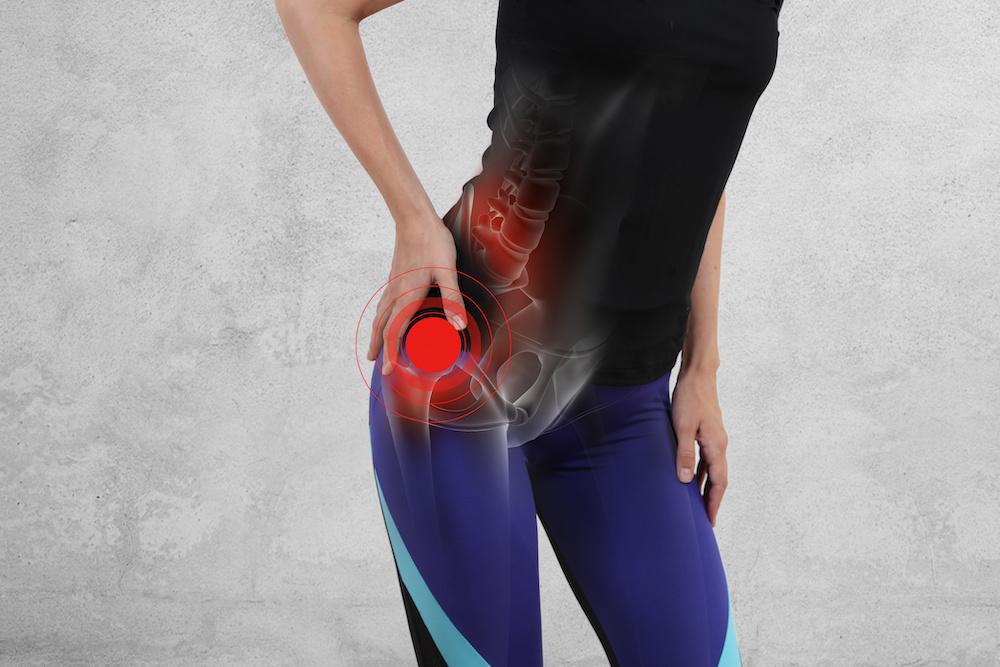Hip pain is a common complaint that can affect people of all ages, from athletes to the elderly. It can be caused by a variety of factors, including injury, overuse, and medical conditions like arthritis. Hip pain can range from mild discomfort to severe pain that affects daily activities. If left untreated, hip pain can lead to further complications and long-term damage, so it’s important to seek relief as soon as possible. This blog post will provide an overview of ways to relieve hip pain and improve mobility. Additionally, if you are experiencing hip pain, it’s important to consult an orthopedic doctor for proper evaluation and treatment. Dr. Rahul Bade is a renowned orthopedic doctor in Pune who specializes in the diagnosis and treatment of hip pain.
Causes of Hip Pain
Hip pain can be caused by a variety of conditions, some of which are chronic while others are acute. Understanding the underlying cause of hip pain is essential in determining the most effective treatment approach. Here are some of the common causes of hip pain:
- Arthritis: Arthritis is a condition that causes inflammation in the joints. Hip arthritis can be caused by wear and tear on the joint or an autoimmune disorder that attacks the joint lining. Symptoms of hip arthritis include pain in the hip joint, stiffness, and difficulty moving the hip joint.
- Bursitis: Bursitis is a condition that causes inflammation in the fluid-filled sacs that cushion the joints. When the bursa in the hip joint becomes inflamed, it can cause pain and tenderness in the hip. This condition is often caused by overuse or injury.
- Tendinitis: Tendinitis is a condition that causes inflammation in the tendons that attach muscles to bones. When the tendons in the hip become inflamed, it can cause pain in the hip and difficulty moving the joint. This condition is often caused by overuse or injury.
- Hip fractures: A hip fracture is a break in the bone that forms the hip joint. This is a common injury in older adults and can be caused by a fall or other trauma. Symptoms of a hip fracture include severe pain in the hip, difficulty moving the hip joint, and swelling.
- Pinched nerves: A pinched nerve in the hip can cause pain, numbness, or tingling in the hip and leg. This condition can be caused by a variety of factors, including injury, poor posture, or a herniated disk in the spine.
Symptoms of Hip Pain
Hip pain can have a range of symptoms, depending on the underlying cause. Some common symptoms include:
- Pain in the hip joint: This is the most common symptom of hip pain. The pain may be felt in the groin area or on the outside of the hip, and it can also radiate down to the thigh or knee.
- Difficulty walking or standing: If you have hip pain, you may have trouble bearing weight on the affected leg or walking without a limp. You may also have difficulty standing up from a seated position.
- Limited range of motion: Hip pain can limit the range of motion in the hip joint. This can make it difficult to perform daily activities, such as tying shoes or getting in and out of a car.
- Stiffness and swelling: Inflammation in the hip joint can cause stiffness and swelling, making it difficult to move the joint.
- Clicking or popping sensations: Some people with hip pain may experience clicking or popping sensations when they move their hip joint. This can be a sign of a joint problem, such as a labral tear.
If you are experiencing any of these symptoms, it is important to seek medical attention to determine the underlying cause of your hip pain and to develop a treatment plan.
Home Remedies for Hip Pain Relief
Hip pain can be uncomfortable and debilitating, making it difficult to perform even simple daily activities. Fortunately, there are several home remedies that can help relieve hip pain. Here are some of them:
- Rest and ice: Resting the affected hip can help reduce inflammation and pain. Applying ice to the area can also provide relief. Wrap a towel or cloth around an ice pack and apply it to the hip for 15 to 20 minutes several times a day.
- Exercise and stretching: Strengthening exercises and stretches can help improve the flexibility and range of motion of the hip joint. This can reduce pain and improve function. Low-impact exercises such as swimming and walking can also be beneficial.
- Weight loss: Excess weight puts additional pressure on the hip joint, which can worsen hip pain. Losing weight through a healthy diet and regular exercise can help reduce hip pain.
- Hot and cold therapy: Alternating between hot and cold therapy can help reduce inflammation and provide pain relief. Apply a hot compress, such as a warm towel or heating pad, to the hip for 20 minutes, followed by a cold compress, such as a bag of ice, for 10 minutes.
- Massage therapy: Massage therapy can help relieve hip pain by improving blood flow and reducing tension in the muscles surrounding the hip joint. Gentle massage with a foam roller or a massage ball can help reduce pain and improve flexibility.
It’s important to note that home remedies may not be effective for everyone and that some hip pain may require medical attention. If the pain is severe, persistent, or accompanied by other symptoms, it’s best to consult a doctor for proper diagnosis and treatment.
Medical Treatments for Hip Pain Relief
- Medications for pain and inflammation: Over-the-counter pain relievers like acetaminophen and nonsteroidal anti-inflammatory drugs (NSAIDs) such as ibuprofen can help alleviate hip pain caused by conditions such as arthritis. In more severe cases, prescription medications such as opioids or corticosteroids may be necessary.
- Physical therapy: A physical therapist can help develop a customized exercise program to strengthen the muscles surrounding the hip joint, improve flexibility, and reduce pain. Physical therapy can also include manual therapy techniques, such as joint mobilization and massage, to help alleviate hip pain.
- Steroid injections: A corticosteroid injection can provide short-term relief for hip pain caused by inflammation. The medication is injected directly into the hip joint to reduce inflammation and pain. It is important to note that steroid injections are not a long-term solution and should be used in conjunction with other treatments.
- Hip replacement surgery: In severe cases where other treatments have been unsuccessful, hip replacement surgery may be necessary. During this procedure, the damaged or arthritic hip joint is replaced with an artificial joint. This surgery is typically reserved for cases where the hip pain significantly impacts daily life and limits mobility.
Prevention of Hip Pain
Hip pain can be debilitating and can affect daily activities, such as walking, sitting, and sleeping. While there are various treatment options available, preventing hip pain in the first place is always the best course of action. Here are some prevention tips that can help reduce the risk of developing hip pain:
- Maintaining a healthy weight: Being overweight puts extra pressure on the hips, which can lead to pain and discomfort. Maintaining a healthy weight can reduce the stress on the hips, and thus reduce the risk of developing hip pain.
- Regular exercise: Exercise helps to strengthen the muscles that support the hips, improve flexibility, and reduce the risk of injury. Low-impact exercises such as swimming, cycling, and walking are good choices.
- Proper posture: Poor posture can put undue stress on the hips and lead to pain. Maintaining proper posture when sitting, standing, and walking can help prevent hip pain.
- Wearing appropriate footwear: Wearing shoes with proper support and cushioning can reduce the stress on the hips, especially during activities like walking, running, or jumping.
- Stretching before exercise: Stretching before exercise can help to warm up the muscles and prevent strains and injuries. Stretching can also improve flexibility and range of motion, reducing the risk of developing hip pain.
By following these prevention tips, individuals can reduce their risk of developing hip pain and improve their overall hip health. It is always important to consult a doctor or physical therapist before starting a new exercise program.
Conclusion
Hip pain can be caused by a variety of factors, such as injury, arthritis, or muscle strain, and can significantly impact one’s quality of life. It’s important to identify the underlying cause of hip pain to determine the most appropriate treatment approach. Some cases of hip pain may resolve on their own with rest and self-care, while others may require medical intervention. It’s crucial to seek medical attention if the pain is severe or persists for an extended period.
In conclusion, understanding the causes and symptoms of hip pain is crucial in managing this condition. This blog post has discussed several ways to relieve hip pain, such as rest, exercise, and medication, among others. However, it’s essential to consult with a healthcare professional to determine the best course of action for your specific case. Remember that taking preventive measures, such as maintaining a healthy weight and engaging in regular exercise, can also help alleviate hip pain.
If you’re experiencing hip pain, consult with a Hip Replacement Surgeon in Pune, such as Dr. Rahul Bade, who can provide personalized treatment options tailored to your needs. Don’t let hip pain take over your life; take control and seek treatment today.









